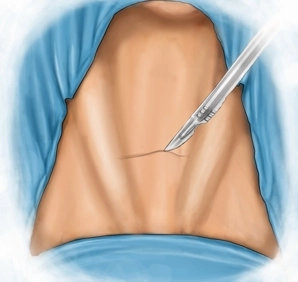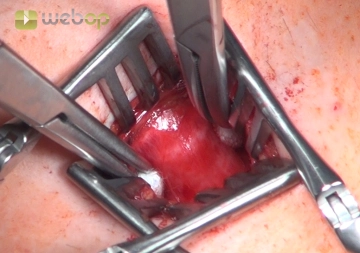Transverse skin incision, about 3 cm, long, inferior to the thyroid cartilage and about 1-2 finger widths superior to the jugular fossa. Take down the skin and platysma to the superficial cervical fascia.
-
Skin incision
-
Tracheal access
![Tracheal access]()
Soundsettings After transverse transection of the superficial cervical fascia incise the pretracheal lamina in the midline and dissect down. After splitting the strap muscles expose the anterior tracheal wall at the level of the 3rd and 4th cartilage ring with two retractors; the thyroid isthmus may have to be pulled craniad.
Note: Excise the thyroid isthmus if it continues to block the anterior tracheal wall, and suture-ligate its transection margins to both lobes of the thyroid.
If possible, fenestrate the trachea between the second and third cartilage ring. In doing so, incis
Activate now and continue learning straight away.
Single Access
Activation of this course for 3 days.
Most popular offer
webop - Savings Flex
Combine our learning modules flexibly and save up to 50%.
US$87.56/ yearly payment
general and visceral surgery
Unlock all courses in this module.
US$175.10 / yearly payment



